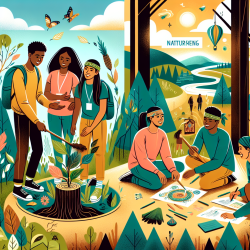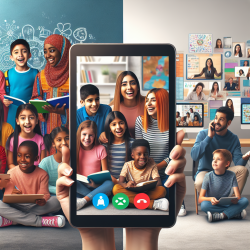Introduction
In a world where the impacts of colonialism and racism continue to reverberate, Indigenous and Northern youth in Canada face unique challenges. Yet, a groundbreaking study titled “Every day I grew stronger and stronger being there” highlights the transformative power of land-and art-based Peer Leader retreats. This research underscores the potential of these retreats to empower young people, enhancing their leadership skills, self-confidence, and social connectedness.
The Power of Land-and Art-Based Retreats
Land-and art-based approaches are not just innovative; they are essential. These retreats offer a holistic framework that integrates traditional teachings, cultural practices, and peer support to foster empowerment among Indigenous and Northern youth. Through activities like storytelling, drumming, and digital storytelling, participants engage in a process of self-discovery and community building.
Quantitative data from the study shows statistically significant increases in leadership and empowerment scores post-retreat. Participants reported feeling more confident, connected, and capable of leading others. This is a testament to the efficacy of integrating cultural elements with modern empowerment strategies.
Qualitative Insights: Voices of the Youth
Focus group discussions revealed profound personal transformations. Participants expressed how the retreats helped them open up, build confidence, and feel a sense of belonging. One participant noted, “I can actually lead the group!” This sentiment was echoed by many, highlighting the retreats' role in fostering leadership and role modeling.
Moreover, the retreats cultivated a strong sense of community. Participants described their peers as a “family,” emphasizing the importance of social connections in their empowerment journey. These bonds were crucial in helping them feel understood and supported, which in turn, bolstered their confidence and self-esteem.
Implications for Practitioners
For practitioners in the field of youth development and empowerment, this study offers valuable insights. Implementing similar land-and art-based approaches can significantly enhance the effectiveness of empowerment programs. Practitioners are encouraged to:
- Integrate cultural teachings and traditional practices into program design.
- Facilitate peer-led activities that promote leadership and role modeling.
- Create safe spaces for open expression and emotional exploration.
- Foster community and social connectedness among participants.
Encouraging Further Research
While this study provides a robust foundation, there is a need for further research to explore the long-term impacts of such retreats. Understanding the mechanisms through which empowerment is achieved can inform the development of more targeted interventions. Practitioners and researchers alike are encouraged to delve deeper into the nuances of empowerment programming, particularly in Indigenous and Northern contexts.
To read the original research paper, please follow this link: “Every day I grew stronger and stronger being there”.: empowerment through land-and art-based Peer Leader retreats with Indigenous and Northern young people.










